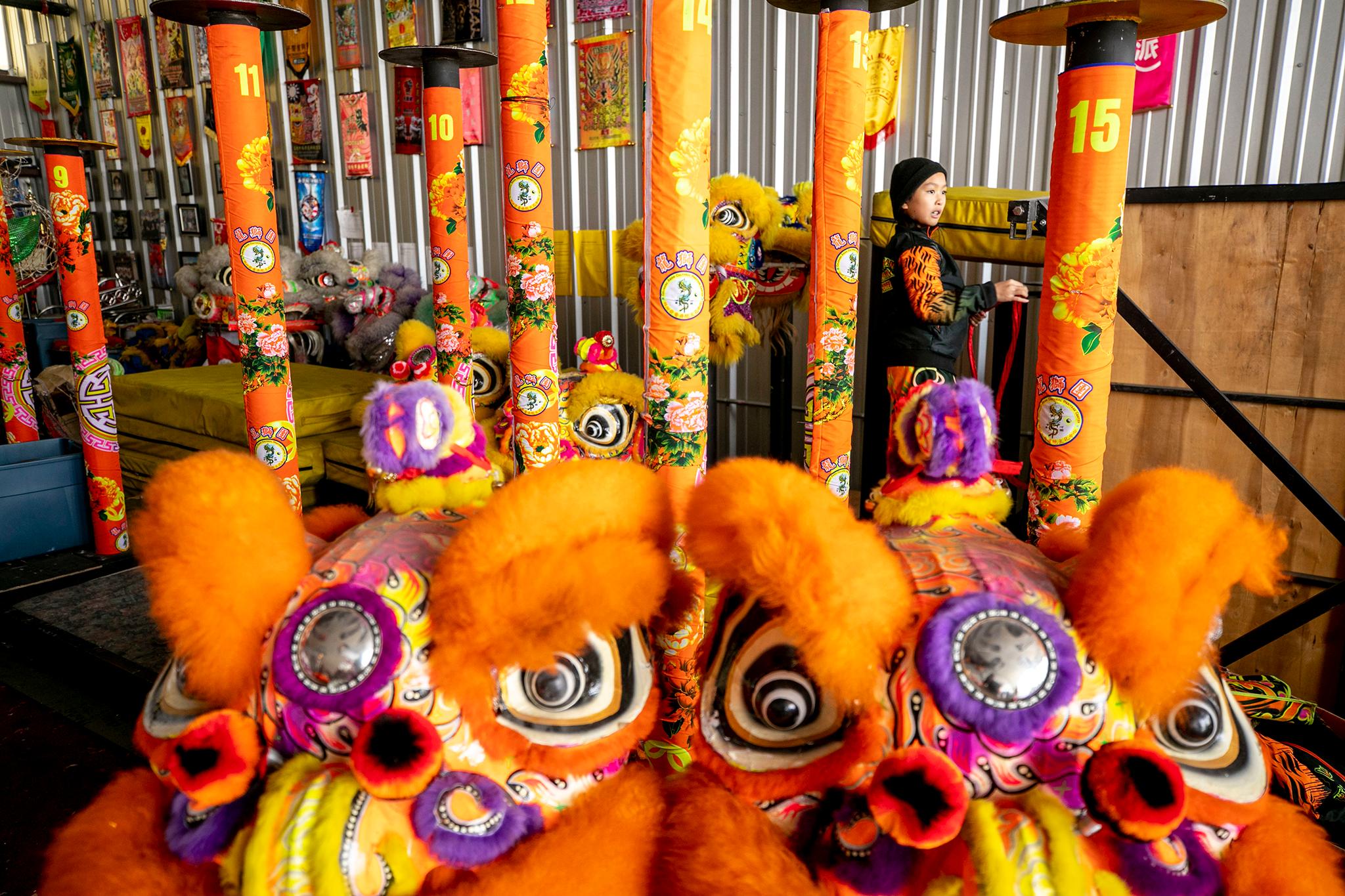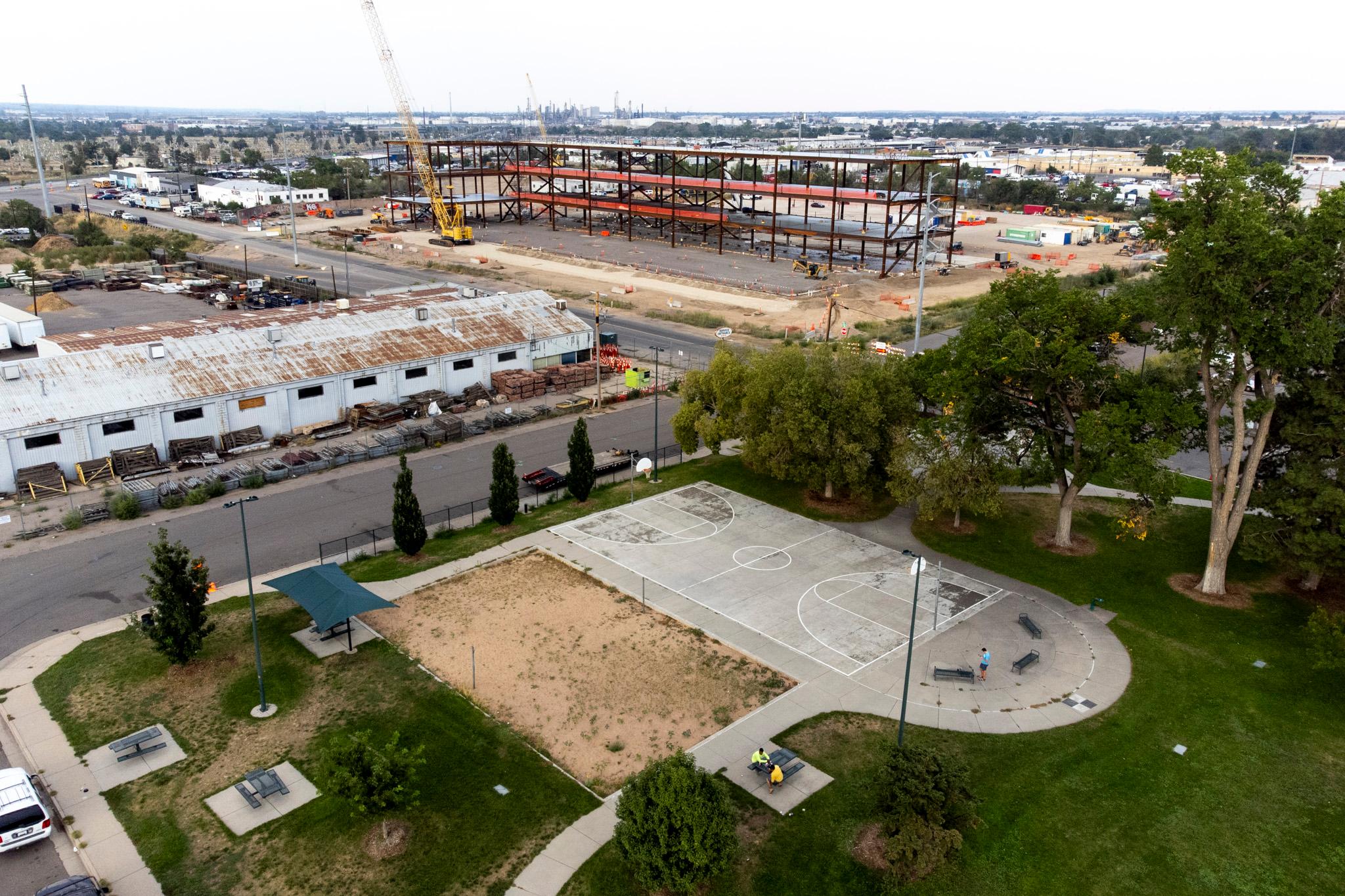Racial diversity may not be the first idea associated with Colorado and Denver, but as Nga Vương-Sandoval points out, the Asian community has had a presence here for hundreds of years and various cultures are flourishing to this day.
Asian and Chinese immigrants helped build Colorado through working in the gold mines and on the transcontinental railroad in the 1800s. Though they played a vital role in shaping the state, they faced hatred and violence.
"Asians and Asian Americans have been here since early on in the 1800s and our presence has been overlooked as well as undervalued as far as so many of the... not just contributions, but for the richness of our history that began centuries and centuries ago in our respective homelands, but also what we bring here as a diaspora," Vương-Sandoval said.
Last year, the community had a major win when Gov. Jared Polis signed into law that the first Friday of every February would be an official observance day of Lunar New Year. Vương-Sandoval said when the new law went into effect, she felt her community's presence in Colorado was finally noticed and appreciated, a sentiment other members of the Asian community shared with Denverite.
"For us, the observance is not just words. The observance is not just a statement. It means something much more significant, much more profound and much more permanent, which is something we've been seeking since the onset of our presence here in the state of Colorado," Vương-Sandoval said. "The impact of the passage, of the observance, of this bill has not only made it possible for the recognition to be more celebrated but also the pride in knowing that there is an appetite that others want to celebrate with us."
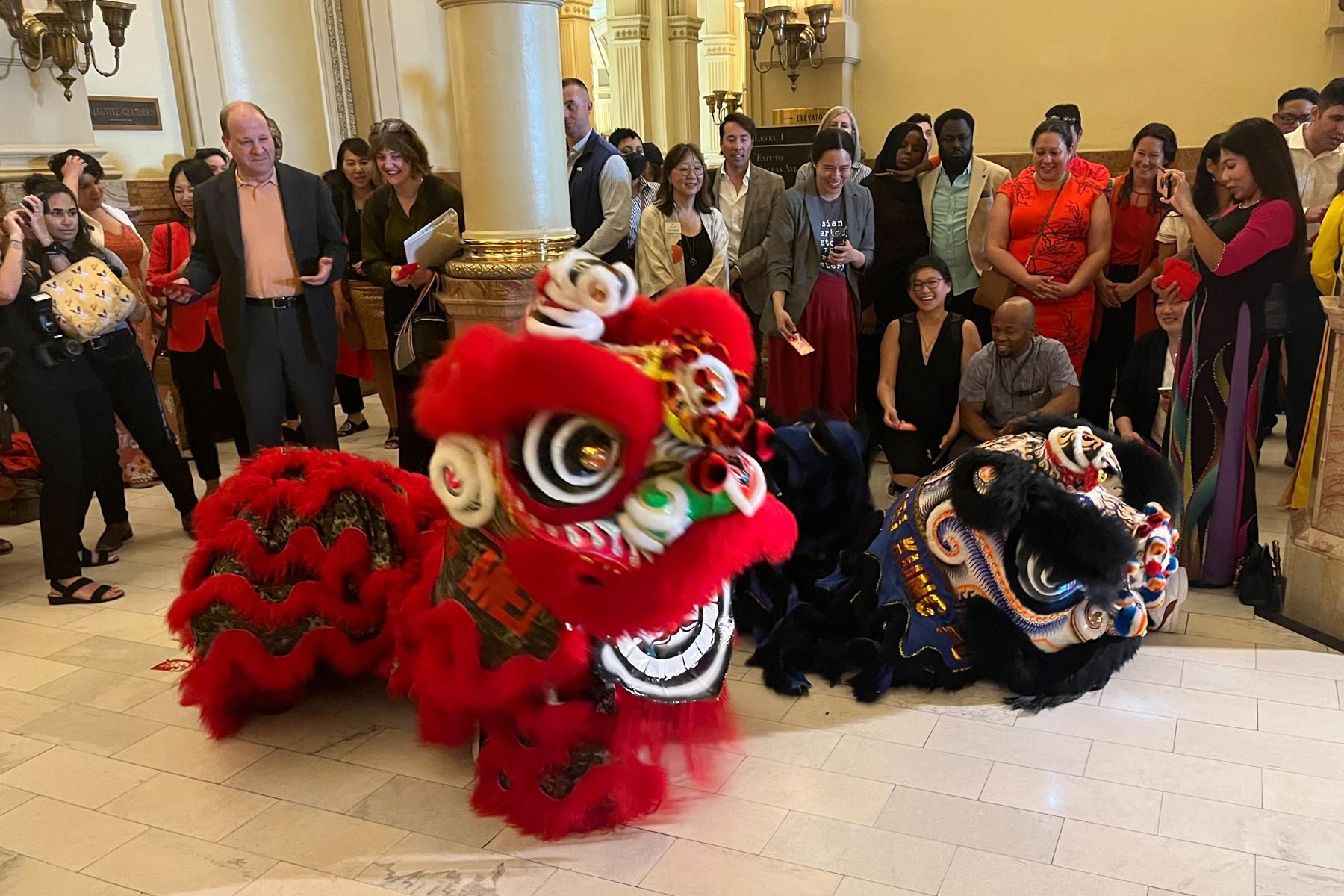
Vương-Sandoval, chair of the Lunar New Year Allies Advisory Group, spearheaded the bill, continuing her efforts to bolster and display Denver's large Vietnamese and Asian community. Vương-Sandoval herself is a Vietnamese refugee, so the cause was near and dear to her heart.
Feb. 2 marked the first day and year Colorado officially celebrated Lunar New Year, though the actual holiday falls this year on Feb. 10. Colorado is the second state, after California, to recognize Lunar New Year as an observed holiday.
Typically, the holiday is celebrated anywhere from late January to the middle of February but for official holiday purposes, the state will celebrate it on the first Friday of February.
It's fitting that this year would be the first year Colorado observes Lunar New Year officially because it is the Year of the Dragon. A symbol, Vương-Sandoval said, that is one of the most recognized symbols in Asian culture.
The dragon represents strength and protection, warding away evil spirits and benevolent gods. The dragon also represents prosperity and good luck. It's possibly the strongest animal in the zodiac and thus is highly significant in Asian culture.
"It's so serendipitous. We never intended to correlate or to coincide the date with the actual zodiac animal, but it just happened to be that dragon," Vương-Sandoval said. "It does signify good luck and it does signify that strength and it does signify all the elements that are quintessential to our various rich and diverse cultures. It also represents protection and I feel that's a significant aspect because it's almost looking over us as a community. It looks over us as something that needs to be preserved and I feel like that's a beautiful message."
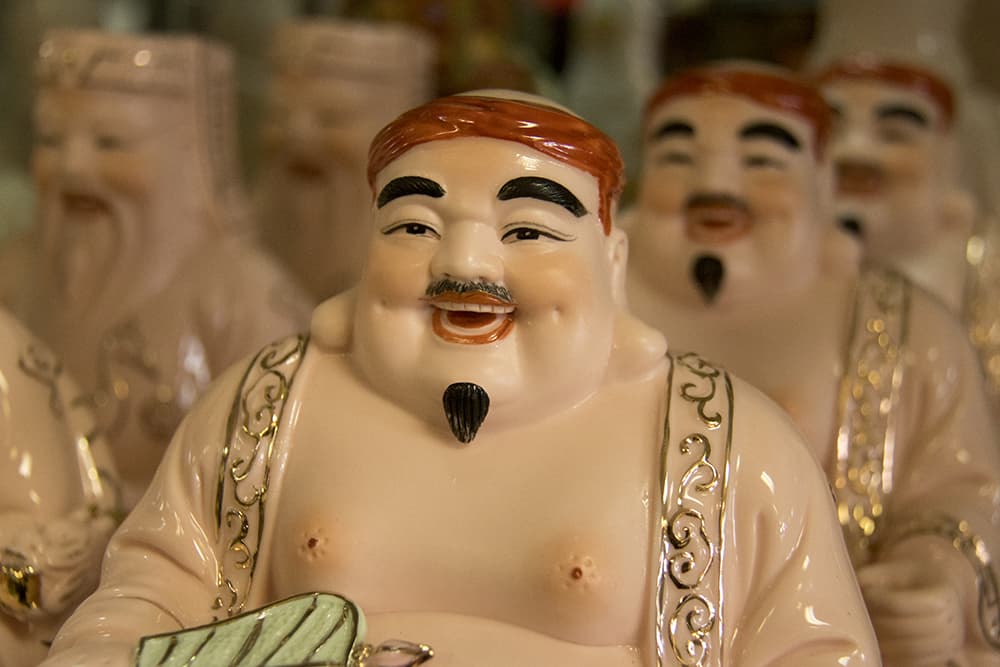
Vương-Sandoval said one of the most interesting things about Colorado celebrating Lunar New Year is that the celebrations tend to be a mesh of how people with roots in various Asian countries celebrate. Colorado has a medley of East Asian immigrants, with a large populations with Chinese and Vietnamese heritage and also Koreans and Japanese people.
That diversity has led to the different cultures together melding, which Vương-Sandoval said creates harmony and invites more people to celebrate.
The community has experienced extreme lows in the past years, particularly around the rise of anti-Asian hate during the pandemic, but Vương-Sandoval said Asian leaders have stepped up and demanded that they be heard, creating change and holding people accountable. It's an age of renaissance and the Year of the Dragon. Vương-Sandoval said folks are looking to keep the momentum going.
"This bill, for me personally, has been something that has been weighing heavily on my mind, particularly in more recent years when the communities were being scapegoated and were being looked at in a very negative way," Vương-Sandoval said. "My heart could not be more overflowed with happiness and pride that we got it done in Colorado. It is something that is monumental and it's significant and definitely a positive sign of things to come with regard to support and with regard to recognition for our Asian community."
Denverite asked several locals about how they celebrate Lunar New Year and what it means to them. Here's what they had to say:
Nga Vương-Sandoval
Vương-Sandoval is Vietnamese and said one of her favorite parts of celebrating Lunar New Year is simply being with family and eating great food. Vương-Sandoval said the holiday is about honoring and remembering the past because you can't celebrate the future without recognizing what's come before.
"There's the paying homage and paying respects to our ancestors who have passed because it's significant to invite those who cannot be there physically, but we still want to honor them and to have them celebrate in unity with us at our celebration spiritually because they're always looking over us," Vương-Sandoval said. "Without our ancestors, we wouldn't have this holiday. Without our ancestors, we wouldn't even know how to celebrate or what the significance of Lunar New Year is."
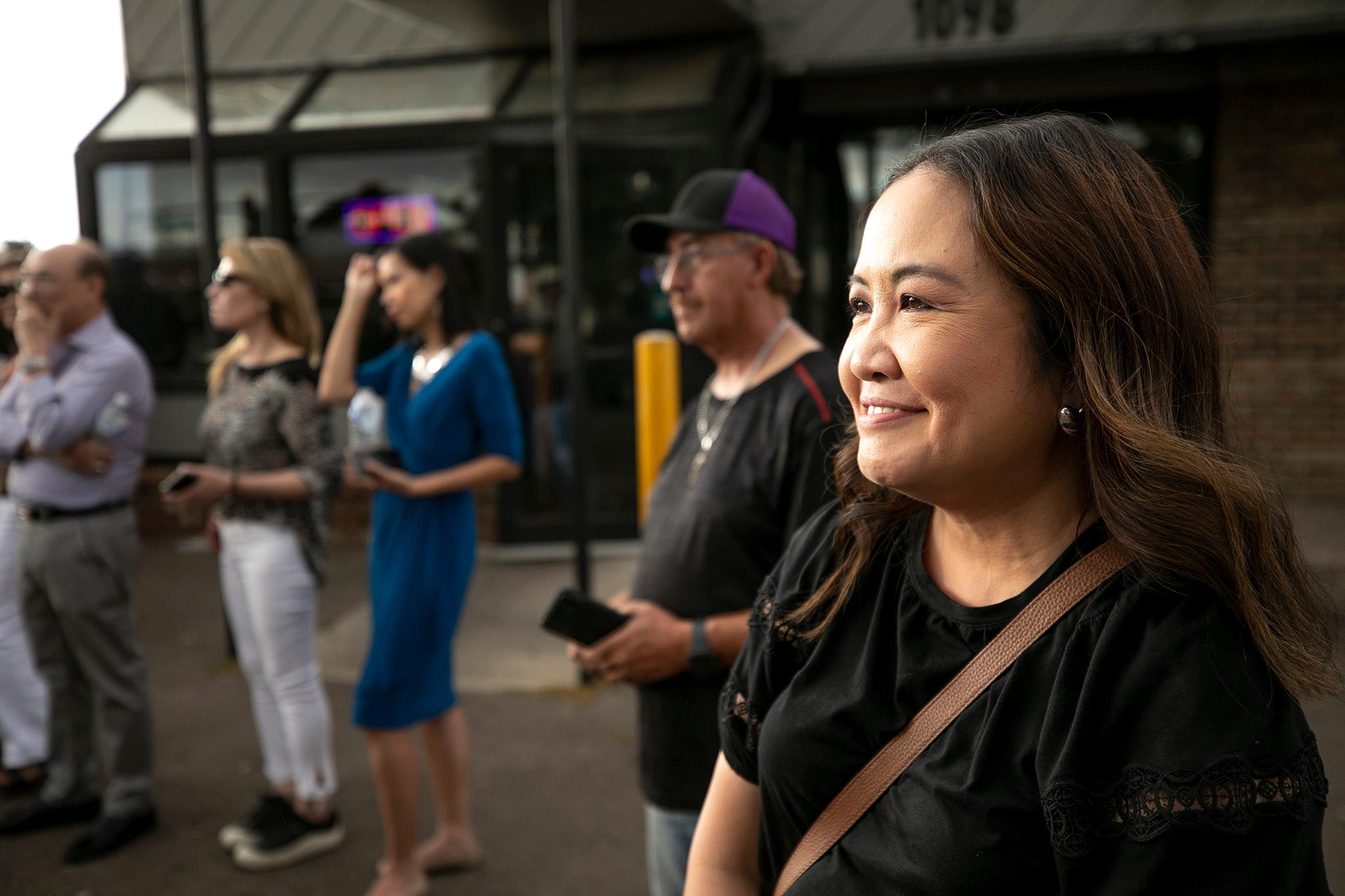
The elders in her family give children red envelopes filled with cash, Vương-Sandoval said, which should be received with both hands as a sign of respect.
said her favorite dish to bring to any celebration is her dad's secret recipe fried rice. Her favorites to eat, though, are her mom's traditional Vietnamese eggrolls.
"There are many types of egg rolls, but there is something very magical about the ingredients and the preparation method that my mom uses and it's just a sign of love for me," Vương-Sandoval said.
Read more: Where to celebrate Lunar New Year in Colorado -- and its holiday traditions explained
Kenneth Wan and Doris Yuen, owners of MAKfam restaurant:
The couple who have put Chinese-American food on the Denver map are, of course, really into the food when it comes to Lunar New Year celebrations.
"We actually celebrated [Tuesday night]. My mom cooked a feast and really, that's what I think the thing Chinese people do is they'll just cook all sorts of different dishes and then have just the entire family get together and sit down for one really big meal," Wan told Denverite this week.
Wan said he's a fan of a Cantonese-style lobster dish prepared by stir-frying all the ingredients, including a meaty lobster tail, in ginger and scallions.
Yuen said she loves longevity noodles because they are tasty but also represent a long and prosperous life. She also eats whole steamed fish that represents "a good beginning and good end."
"The head represents the beginning, having a great beginning of the year. The tail basically represents the end of the year and having a great end of the year. So overall, a good year all the way from beginning to the end," Yuen said.
Minsoo Song, International Community Outreach Coordinator with Aurora's Office of International and Immigrant Affairs
Song moved to Aurora when she was 25 years old from Korea and has since worked with the immigrant population in the city, assisting many with acclimating to their new lives, through English and citizenship classes and other advocacy work.
In Korea, Song said the holiday also centers around hanging out with family members and paying respects to their elders, who pass out sweet treats to the young children. Family dress in their traditional Korean attire or "hanboks" and some go to church before settling down to eat.
Song said the main dish is tteokguk, a Korean rice cake soup. "Tteok" means rice cake (most folks will recognize the word from Tteok-bokki or spicy rice cakes) "Guk" means soup.
Song said the soup is symbolic because the more you eat, the more years you add to your life.
"Some older people say they don't want to eat tteokguk because they don't want to be too old," Song said and laughed.
Song said the official state observance of Lunar New Year couldn't have come at a better time, especially with what the Asian population experienced during the pandemic. But she loves that everyone is willing to learn about the holiday and experience it for themselves.
"There's so many events happening this year. Enjoy being surrounded by all those good messages," Song said.
Mimi Luong, owner of Truong An Gifts
Luong and her family have been opening their business parking lot at the Far East Center to welcome all members of the community to their Lunar New Year celebrations for more than 30 years.
Over the years, the lot has filled with more and more food vendors, along with lion dancing performances and musical performances. Luong said having the holiday be officially observed by the state is a special moment for the community, who once only celebrated indoors.
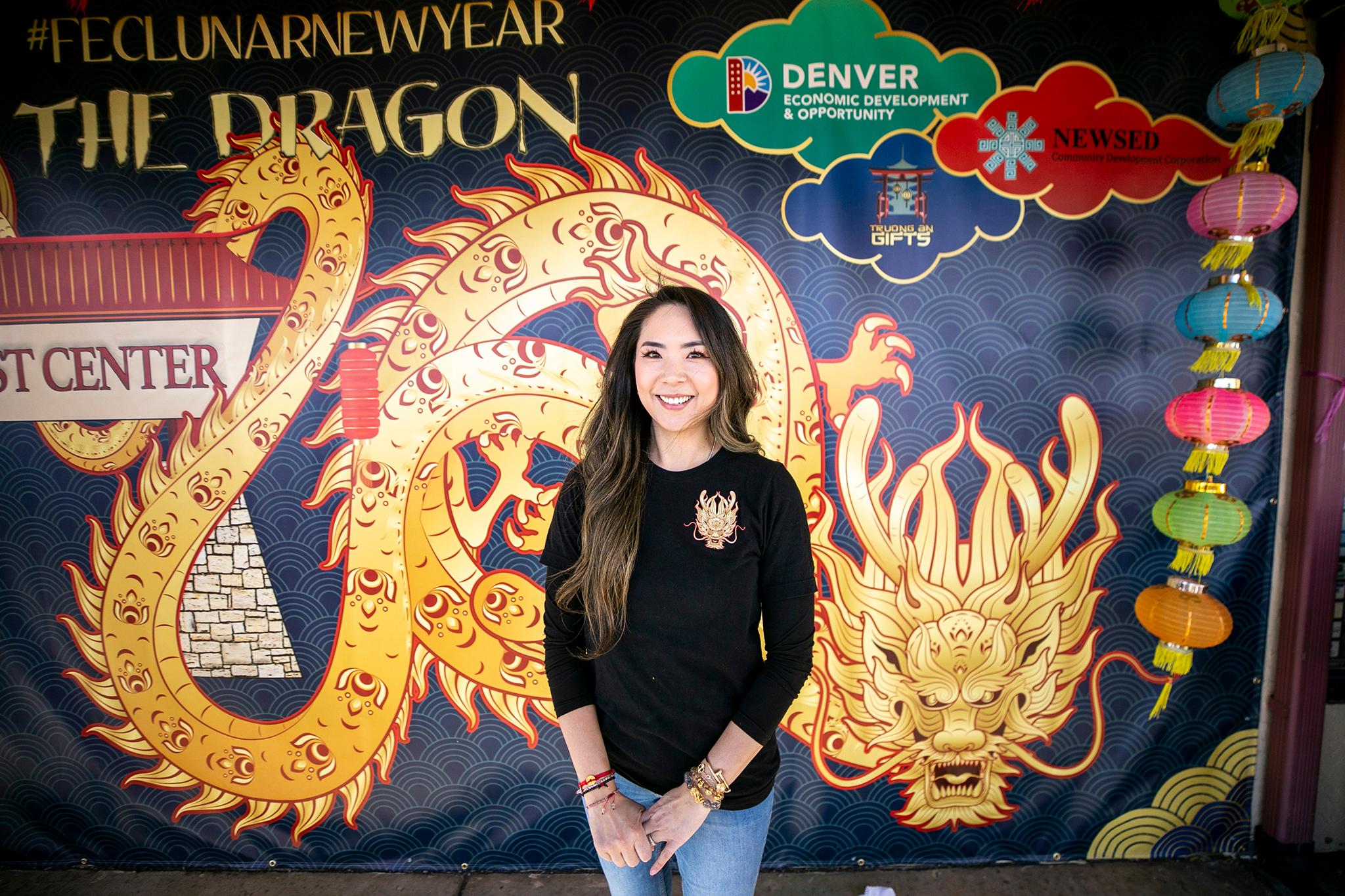
"My mom is, I think, the most touched because for her, coming here from Vietnam where they celebrate all the time and then you come to America and for years they weren't able to even celebrate it because there was nothing that offered any cultural resemblance," Luong said. "She's just so surprised that a cultural holiday that she grew up celebrating is now being recognized in the U.S. It's huge for her."
The Luong family's party at home has the same vibes as the one they throw at the Far East Center.
The family gathering is huge and her favorite part is the games and the dumplings, Luong said. Her family makes hundreds of dumplings. Whoever is hosting the dinner will place a food plastic-wrapped coin inside one of the dumplings and the person lucky enough to get it wins a cash prize.
They also play bầu cua cá cọp, or the fish prawn crab game, which is basically a gambling game with dice. Luong said they sell the game at Target, proof that interest in Lunar New Year celebrations is growing.
As for the food, Luong said she enjoys eating long noodles.
"Long noodles represent long life and you definitely don't want to bite it. You try to swallow the strands whole because then that means your life will be longer. So me and my cousins always try to see who can get the longer noodle or whatever without biting it," Luong said.
If you celebrate and want to share your traditions, let us know at [email protected]
Happy New Year!

